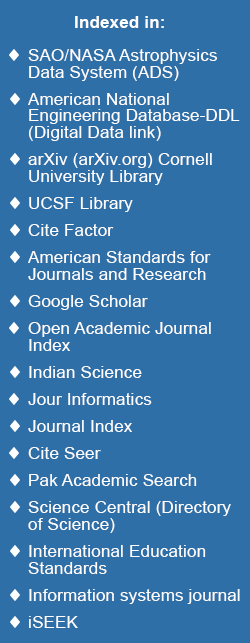ISSN : 2349-3917
American Journal of Computer Science and Information Technology
Agent Architecture: Enabling Intelligent Autonomous Systems
Kwon Ho Wang*
Department ofComputer Science and Information Technology, Gangneung-Wonju National University, Republic of Korea
- *Corresponding Author:
- Kwon Ho Wang
Department of Computer Science and Information Technology,
Gangneung-Wonju National University,
Republic of Korea,
Email: kwonhowang56@hotmail.com
Received date: March 07, 2023, Manuscript No. IPACSIT-23-16779; Editor assigned date: March 09, 2023, PreQC No. IPACSIT-23-16779(PQ); Reviewed date: March 23, 2023, QC No. IPACSIT-23-16779; Revised date: March 30, 2023, Manuscript No. IPACSIT-23-16779(R); Published date: April 07, 2023, DOI: 10.36648/ 2349-3917.11.4.4
Citation: Wang KH (2023) Agent Architecture: Enabling Intelligent Autonomous Systems. Am J Compt Sci Inform Technol Vol: 11 No: 4: 004.
Introduction
Agent architecture is a key concept in the field of artificial intelligence and robotics, providing a framework for designing and implementing intelligent autonomous systems. This research article explores the concept of agent architecture, its significance in building intelligent agents, and its practical applications in various domains. Agent architecture defines the structure and behavior of intelligent agents, which are computational entities capable of perceiving their environment, making decisions, and taking actions to achieve specific goals. Agent architectures provide a blueprint for designing and implementing these intelligent systems. Perception: Agents perceive their environment through sensors, which capture data from the external world. Knowledge Representation: Agents maintain an internal representation of the world, often in the form of knowledge bases or ontologies. Reasoning and Decision Making: Agents utilize reasoning mechanisms, such as logic or probabilistic inference, to make decisions based on their goals, beliefs, and available knowledge. Planning and Action: Agents plan and execute actions to achieve their goals, considering the available information and the potential consequences of their actions.
Types of Agent Architecture
Various types of agent architectures exist, each suited for different applications and problem domains. Reactive Agents: These agents react to their environment in real-time, without maintaining an internal state or long-term memory. Deliberative Agents: Deliberative agents maintain a model of the world, reason about it, and make decisions based on their beliefs and goals. Hybrid Agents: Hybrid architectures combine reactive and deliberative components, allowing agents to react quickly to immediate stimuli while also considering long-term planning. Agent architecture finds practical applications in diverse domains, showcasing the versatility and power of intelligent autonomous systems. Agent architecture plays a crucial role in robotics and automation. Autonomous robots utilize agent architectures to perceive their surroundings, plan their actions, and navigate complex environments. This enables applications such as autonomous exploration, industrial automation, and collaborative robotics. Agent architectures are at the core of intelligent virtual assistants, such as voice-activated systems and chatbots. These agents perceive user inputs, reason about them, and generate appropriate responses, providing natural language interaction and personalized assistance.
Multi-Agent Systems
Agent architectures are used to design and coordinate interactions among multiple agents in multi-agent systems. This enables applications such as decentralized task allocation, swarm robotics, and distributed problem solving. Agent architecture provides a framework for designing intelligent autonomous systems capable of perceiving their environment, reasoning, making decisions, and taking actions. Understanding and implementing agent architectures enable the development of advanced robotic systems, intelligent virtual assistants, and multi-agent systems. By defining the components and interactions within an agent architecture, researchers and developers can create intelligent agents that operate effectively in complex and dynamic environments. Agent architecture continues to drive advancements in artificial intelligence and robotics, paving the way for the development of sophisticated, autonomous systems that can augment human capabilities and solve complex real-world problems.

Open Access Journals
- Aquaculture & Veterinary Science
- Chemistry & Chemical Sciences
- Clinical Sciences
- Engineering
- General Science
- Genetics & Molecular Biology
- Health Care & Nursing
- Immunology & Microbiology
- Materials Science
- Mathematics & Physics
- Medical Sciences
- Neurology & Psychiatry
- Oncology & Cancer Science
- Pharmaceutical Sciences
